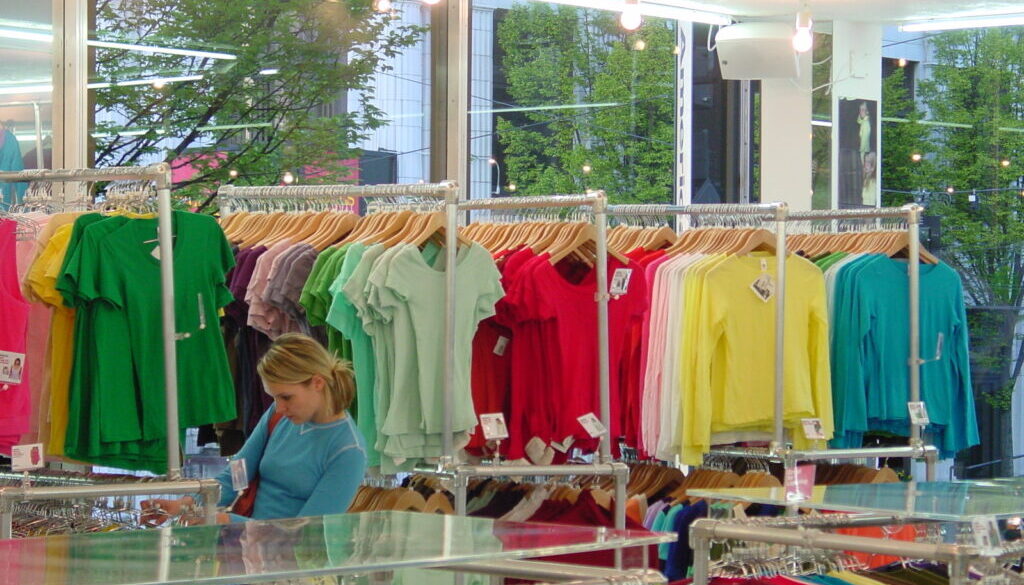Central American textile manufacturers adversely affected by US inflation
Table of Contents
Contact the Central American Group to invest in manufacturing in El Salvador. We have a place for your business in one of our free zones.
Central American textile manufacturers report that orders for their products lag because chain stores are selling fewer garments in the United States.
Textile manufacturers in Central America feel the pain of US inflation
The retail sector in the United States is currently under pressure from a high inflation rate. This circumstance has reshaped the habits of the country’s consumers. Americans are now spending more on food and less on merchandise such as clothing and household items. This has caused harm to Central American textile manufacturers.
Consequently, Central America’s clothing and textile industry is experiencing anxiety because many of its main US customers have delayed or stopped their purchase orders for garments made in the region. This has led some companies to close factories and lay off staff to save on costs. A notable example of this trend is the recently announced closure of the Hanes Brands plant in Choloma, Honduras. When the plant closes during the month of November, it will eliminate 1,700 jobs in the country.
Demand for textile imports from Central America had been strengthening
It must be remembered that the sale of clothing in the United States grew by 19.3% in 2021. As a result, major players in the clothing textile sector, such as Target, Walmart, Urban Outfitters, Costco, and Dollar General, increased their casual and sportswear orders to Central American textile manufacturers.
According to figures provided by the US International Trade Administration’s Office of Textiles and Apparel (OTEXA), in January 2022, clothing exports from Guatemala, El Salvador, Honduras, and Nicaragua to the US market exceeded those registered in 2019, before the onset of the coronavirus pandemic.
In this regard, Dean García, advisor to the Nicaraguan Association of the Textile and Clothing Industry (ANITEC), attributed the increase to several factors. These included circumstances such as the economic rebound in the United States during the last quarter of 2021. In addition, the health crisis that affected the global logistics supply chain forced US customers to redirect orders and production contracts to countries in the region.
The stores estimated that there would be a significant movement of products during the return to class of US students in 2022. However, they did not anticipate that a high inflationary environment (8.5% in October) would negatively impact consumer behavior. This shift in spending has forced companies to reduce the prices of items such as clothing to free up inventories. Investors see this circumstance as a prelude to an overall sluggish macroeconomic environment.
“Our internal supply chain is not moving at the pace that we expected,” Brian Cornell, CEO of Target, said during an interview on CNBC. In this way, he highlighted that the significant retailer still had inventory from 2021, which they received late as part of this year’s stock.
Retailers are offering discounted prices.
In fact, the surplus of clothing exported to the US by Central American textile manufacturers is such that companies return the money in addition to solid discount prices in the case of wanting to return a good due to a defect. However, they will not oblige the customer to return the item. CNN reported that this extreme measure is being taken to reduce stress on the companies’ warehouse capacity.
In the words of Alejandro Ceballos, vice president of the Apparel and Textiles Sector of the Guatemalan Association of Exporters ( Agexport ), the last quarter of the year “is going to be very dark.” This is because there is “a lot of uncertainty” in factories with canceled orders. “The orders have been stopped. It’s as if the region’s customers have said, “don’t do anything or even touch the fabric because I don’t know what I’m going to do.” For this reason, Central American textile manufacturers continue accumulating their fabric inventory.
The first concrete impacts of this situation have already been felt in El Salvador and Honduras. In addition to Hanes Brands, another major company in the region, Fruit of the Loom, recently announced that it will cut some 3,200 direct jobs (eight hundred in El Salvador alone) due to the drop in demand for garments in the United States.
The executive director of the Salvadoran Textile Chamber of Commerce (Camtex), Patricia Figueroa, explained that the Fruit of the Loom company, a member of her organization, closed its plant in the International Free Zone in the country in October. She expressed that, “The company has faithfully complied with all the obligations it has acquired during the employment relationship with workers.”
Exports from Central American textile manufacturers stand out as one of the leading suppliers to the United States of items such as cotton t-shirts, synthetic fiber t-shirts, socks, undergarments, sweatshirts, casual work clothes, and outdoor clothing.
Contact Us
Please use this form to contact us and we will respond as soon as possible:





